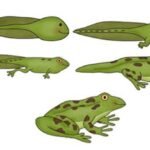An adjective is a word which describes or modifies a noun or a pronoun. For example, in the sentence, “ Sita has bought a red, five-seater car”, the words “red, five-seater” are adjectives as they describe the noun, “car”.
Adjectives
Adjectives needn’t always come before a noun, as in “He is a nice boy”; An adjectives may not sometimes need nouns. For example, in the sentence, “He is good”, the adjective “good” doesn’t come before any noun, yet it describes the noun “boy”.
Some more example of adjectives not being used before nouns
- He is intelligent.
- I feel happy.
- She seems unhappy.
- They look fantastic.
Comparatives and Superlatives
Adjectives are not only used in describing nouns, but also used in comparing them. When adjectives are used for comparing people, we call them comparatives and superlatives
Comparatives
The comparative form of adjectives is used when we are comparing one noun with the other samples of the same noun.
Example
- Rahul is more intelligent than Sourav. (Rahul compared with Sourav)
- Sourav is faster than Rahul. (Sourav compared with Rahul)
- Rahul and Sourav are fitter than the rest of boys in the team. (Both Rahul and Sourav compared with the rest of the team)
Comparative forms are given to an adjective by using “more” before the adjective.(More talented, more senior, more honest). However, in many cases, the adjectives are not used with “more”, but a different form ending with “-er”.
- He is more hungry than me. (Wrong)
- He is hungrier than me. (Correct)
- He is more tall than me. (Wrong)
- He is taller than me. (Correct)
Superlatives
We use superlatives when we compare a noun with similar nouns on the basis of quality. For example – height, wealth, talent, fitness, etc. We find that one of them has the highest level of a quality.
For Example
- Rajesh is a strong boy.
- Suresh is stronger than Rajesh.
- Ramesh is stronger than both Rajesh and Suresh.
- Ramesh is the strongest of all three boys.
Adjectives and the Comparison Table
There are many hundreds of adjectives that are used in daily life so it’s not possible to list them all in one place, unless the entire book is dedicated to discuss the adjectives.
The following tables have a list of adjectives that are the most-commonly used the examinations and comprehensions. In addition to that, there is also the technique mentioned on how to convert the adjective to comparative and superlative degrees −
| By adding “r” and “st” | ||
|---|---|---|
| Positive | Comparative | Superlative |
| Brave | Braver | The bravest |
| Fine | Finer | The finest |
| Large | Larger | The largest |
| Nice | Nicer | The nicest |
| Noble | Nobler | The noblest |
| Pale | Paler | The palest |
| Simple | Simpler | The simplest |
| Wise | Wiser | The wisest |
| White | Whiter | The whitest |
| Heavy | Heavier | The heaviest |
| By deleting the final “y” and adding “ier” and “iest” | ||
|---|---|---|
| Positive | Comparative | Superlative |
| costly | costlier | The costliest |
| Dry | Drier | The driest |
| Easy | Easier | The easiest |
| Happy | Happier | The happiest |
| By adding “er” and “est” | ||
|---|---|---|
| Positive | Comparative | Superlative |
| Bright | Brighter | The brightest |
| Black | Blacker | The blackest |
| Bold | Bolder | The boldest |
| Clever | Cleverer | The cleverest |
| Cold | Colder | The coldest |
| Fast | Faster | The fastest |
| Great | Greater | The greatest |
| High | Higher | The highest |
| Kind | Kinder | The kindest |
| Long | Longer | The longest |
| Small | Smaller | The smallest |
| Strong | Stronger | The strongest |
| Sweet | Sweeter | The sweetest |
| Tall | Taller | The tallest |
| Young | Younger | The youngest |
| By doubling the final consonants | ||
|---|---|---|
| Positive | Comparative | Superlative |
| Big | Bigger | The biggest |
| Dim | Dimmer | The dimmest |
| Fat | Fatter | The fattest |
| Hot | Hotter | The hottest |
| Thin | Thinner | The thinnest |
Read more: Verbal ability articles
| By using “more”and “the most” | ||
|---|---|---|
| Positive | Comparative | Superlative |
| Active | More active | Most active |
| Attractive | More attractive | Most attractive |
| Beautiful | More beautiful | Most beautiful |
| Brilliant | More brilliant | Most brilliant |
| Careful | More careful | Most careful |
| Courageous | More courageous | Most courageous |
| Cunning | More cunning | Most cunning |
| Difficult | More difficult | Most difficult |
| Famous | More famous | Most famous |
| Faithful | More faithful | Most faithful |
| Proper | More proper | Most proper |
| Popular | More popular | Most popular |
| Splendid | More splendid | Most splendid |
| Irregular Comparisons | ||
|---|---|---|
| Positive | Comparative | Superlative |
| Bad | Worse | Worst |
| Evil | Worse | Worst |
| Good | Better | Best |
| Ill | Worse | Worst |
| Far | Farther | Farthest |
| Well | Better | Best |
| Late | Later | Latest |
| Little | Less | Least |
| Much | More | Most |
| Many | More | Most |
| Near | Nearer | Nearest |
| Old | Older | Oldest |
| Old | Elder | Eldest |
Possessive Adjectives
Possessive adjectives describe the ownership of the noun. They describe if something/someone mentioned in the sentence belongs or is related to the noun. Examples include- my, your, his, her, its, our, your, their.
Example
- I’ll get my bag.
- Is this your luggage?
Possessive adjectives are often confused with possessive pronouns.
Example
- Your bike is blue. (“your” is an adjective which modifies bike)
- Mine is yellow. (“Mine” is a pronoun which functions as the subject of the verb is)
| Subject Pronouns | I | We | You | He | She | It | They |
| Object Pronouns | Me | Us | You | Him | Her | It | Them |
| Possessive Adjectives | My | Our | Your | His | Her | Its | Their |
| Possessive Pronouns | Mine | Ours | Yours | His | Hers | Its | Their |
Difference between Adjectives and Adverbs
Adjectives are words that describe the nouns, but adverbs describe the action. These two are very commonly misused in place of each other.
Let us discuss the following example −
- Rajat is a good chef as he cooks tasty dishes and also manages everything perfectly.
In this example, the words “good” and “tasty” describe the nouns “chef” and “dishes” respectively, hence they are adjectives.
On the other hand, the word “manages” is an action and “perfectly” is used to describe how Rajat manages everything, hence it is an adverb.
Question with solved example:
Q1. One look at the cloudless sky will tell you that it won’t rain today.
[B] – Cloudless
[C] – Tell
[D] – Rain
Answer – B
Explanation
This word is the adjective used to describe the noun, sky.
Q2. − Tanmay likes to walk along the road and collected oval-shaped stones.
[B] – Walk
[C] – Oval-shaped
[D] – Road
Answer – C
Explanation
This word is the adjective used to describe the noun, stones.
Q3. It is unsafe to leave the doors open at night as there is risk of theft.
[B] – Leave
[C] – Doors
[D] – Risk
Answer – A
Explanation
This word is the adjective used to describe the action of “leaving doors open”.
Q4. Dinesh and Dana were looking for shiny objects in the water.
[B] – Dinesh
[C] – Water
[D] – Looking
Answer – A
Explanation
This word is the adjective used to describe the noun, objects.
Q5. Smiling is a marvelous way to deal with customers.
[B] – Smiling
[C] – Marvelous
[D] – Customers
Answer – C
Explanation
This word is the adjective used to describe the noun, way
Q6. Dorothy felt the warm sand between her toes when the waves started to recede.
[B] – Toes
[C] – Waves
[D] – Recede
Answer – A
Explanation
This word is the adjective used to describe the noun, sand.
Q7. Jai ran along the road trying to get his yellow kite to fly.
[B] – Ran
[C] – Fly
[D] – Yellow
Answer – D
Explanation
This word is the adjective used to describe the noun, kite.
Q8. Ships take precaution while approaching the rocky shoreline.
[B] – Precaution
[C] – Rocky
[D] – Shoreline
Answer – C
Explanation
This word is the adjective used to describe the noun, shoreline
Q9. Jose loves to show off his sun-tanned skin.
[B] – Loves
[C] – Jose
[D] – Show
Answer – A
Explanation
This word is the adjective used to describe the noun, skin.
Related Post:













